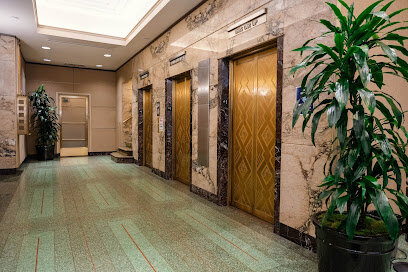Best Property Damage Lawyers in Portland
Share your needs with us, get contacted by law firms.
Free. Takes 2 min.
List of the best lawyers in Portland, United States
United States Property Damage Legal Questions answered by Lawyers
Browse our 1 legal question about Property Damage in United States and read the lawyer answers, or ask your own questions for free.
- MOVING COMPANY DAMAGED RENTAL HOME, FURNITURE AND NEW HOME
- MOVING COMPANY DAMAGED WALLS AND FURNITURE IN TWO HOUSES, THEY DIDNT USED PACKING BLANKETS OR MOVING EQUIPMENT, I FILED A DAMAGE CLAIM MID MOVE, AND RELIEVED THE WORKERS EARLY FROM SCHEDULED TIME TOOK PICS AND SUBMITTED TO THE MOVING COMPANY, NOW THE MOVING COMPANY IS INSINUATING WE CAUSED THE DAMAGE,... Read more →
-
Lawyer answer by T & A Legal
Hello, sorry about the damage to your walls and furniture. The moving company may be liable for a breach of contract or negligence. However, their liability will be determined largely by the contract between you and the moving company.Please note...
Read full answer
About Property Damage Law in Portland, United States
Property damage law covers legal rights and remedies when real property or personal property is harmed. In Portland, property damage issues arise in many contexts - home damage from storms or flooding, vehicle collisions that damage parked cars, construction-related damage, neighbor disputes over trees or fences, landlord-tenant conflicts about rental-unit damage, and damage involving public infrastructure such as sidewalks or street trees. Property owners, tenants, businesses, contractors, and public entities all may be involved.
Legal outcomes depend on who caused the damage, why it happened, and the contractual or statutory relationships among the parties. Many claims are resolved through insurance, repair agreements, or informal negotiation. Some disputes become formal claims in small claims court, civil courts, or administrative forums. Because local procedures, insurance practices, and municipal rules affect remedies and deadlines, people in Portland should consider local rules and professional legal advice when damage is significant or disputed.
Why You May Need a Lawyer
You may want a lawyer for property damage matters when the facts, money, or parties involved make resolution uncertain or difficult. Common situations that call for legal help include:
- Significant damage where repair costs are substantial and the responsible party or insurer is disputing liability or the amount of loss.
- Insurance denials or low settlement offers - an attorney can review your policy, explain coverage issues, and negotiate or litigate on your behalf.
- Disputes with contractors over repair quality, breach of contract, or unfinished work after payment.
- Complex liability questions - for example, multiple potential at-fault parties, shared responsibility, or damage caused by municipal work.
- Claims against public entities - government bodies often have special notice rules and shorter deadlines that require prompt legal attention.
- Neighbor disputes involving trees, boundary damage, or easements that could involve long-term property rights issues.
- Commercial property losses, environmental contamination, or business interruption where damages and legal issues are more complex.
Even when a case seems simple, an initial consultation can clarify your rights, the likely value of a claim, applicable deadlines, and whether negotiation or litigation is the best path.
Local Laws Overview
Portland property damage disputes are affected by a mix of state law, city code, county rules, and insurance law. Important local aspects include:
- State-law foundations - Oregon tort and contract principles govern negligence, trespass, and breach of contract claims. Those principles determine who is legally responsible for damage and how damages are calculated.
- City codes and ordinances - Portland has local codes governing public right-of-way, street trees, building permits, construction standards, and code enforcement for unsafe buildings. Damage involving city property or work in the public right-of-way may trigger specific administrative procedures.
- Notice and procedural requirements for government claims - claims against the City of Portland or other public bodies often require advance notice or administrative claim filings before a lawsuit can proceed. Missing those steps can bar recovery, so prompt attention is important.
- Insurance regulation - home, renter, auto, and commercial insurance policies are regulated at the state level. Policy terms, deductibles, duties to mitigate damage, and claim procedures influence outcomes. Disputes over coverage or claim handling can involve state insurance regulators or litigation.
- Landlord-tenant law - Oregon and local landlord-tenant rules govern who must repair damage in rental housing, how security deposits can be used, and tenant remedies for unaddressed damage that affects habitability.
- Construction and contracting rules - licensed contractor requirements, mechanic lien laws, and consumer protection rules apply to repair and construction disputes. Contractors may have to follow permit and inspection rules enforced by the Bureau of Development Services.
- Small claims and civil court limits - lower-value disputes are often handled in small claims court or civil court. Monetary limits, filing rules, and evidence standards vary by court and are important to check early in a dispute.
Frequently Asked Questions
What should I do first after discovering property damage?
Prioritize safety and mitigation. If there is ongoing danger, call emergency services. Document the damage thoroughly with photos and videos, note the date and time, keep damaged items if safe, and write down witness names. If the damage involves a vehicle collision, exchange information with other drivers and obtain a police report. Notify your insurer promptly and follow their claim reporting procedures. Preserve receipts for emergency repairs and keep records of communications.
How do I prove who is responsible for the damage?
Liability is proven through evidence showing what happened and who acted negligently or intentionally. Useful evidence includes eyewitness statements, photos or video, surveillance footage, repair estimates, maintenance records, contracts, and expert reports. Timely documentation and preservation of evidence strengthens your position. An attorney can help gather evidence, obtain preservation orders when appropriate, and identify legal theories of liability.
Will my homeowner or renter insurance pay for the damage?
Coverage depends on your policy language, the cause of damage, applicable exclusions, and whether you met policy requirements such as timely notice and mitigation. Standard homeowner policies cover many sudden losses, but not all causes. Renter policies typically cover personal property but not the building itself. Read your policy, report the claim, and keep written records of all communications. If a claim is denied or underpaid, a lawyer experienced in insurance disputes can review the policy and options.
What if the city caused the damage or work in the public right-of-way damaged my property?
Claims against a municipality often require special advance notice and have shorter filing deadlines than regular lawsuits. Portland and state rules may require submitting a written claim to the appropriate city department before filing suit. Because procedural missteps can prevent recovery, contact an attorney promptly if city work or municipal action caused your loss.
Can I sue a neighbor for damage caused by a tree or fence?
Yes, neighbors can be liable for damage caused by trees, roots, or fences if they were negligent or if local rules impose responsibility. Many tree disputes involve questions of foreseeability and notice - for example, whether the neighbor knew the tree was hazardous. Local ordinances may also govern street trees and tree removal. Often these disputes are resolved through negotiation, mediation, or small claims court for lower-value losses. Legal help is useful when the damage is substantial or liability is contested.
How long do I have to file a property damage claim?
Time limits apply, and they vary by type of claim and defendant. Statutes of limitations set deadlines for lawsuits. For claims against public entities, there are often shorter deadlines and mandatory notice requirements. Because missing a deadline can forfeit your right to sue, seek legal or clerical guidance early to identify applicable time limits.
When is small claims court the right option?
Small claims court can be appropriate for straightforward disputes with relatively low dollar amounts, where quick resolution is preferred and parties want to avoid higher litigation costs. Small claims procedures are simplified and usually do not require an attorney. However, if liability is complex, if the defendant is a business or government entity that requires formal procedures, or if potential damages exceed the court limit, a civil lawsuit with legal representation may be better. Check the current small claims monetary limit and rules for Portland and Multnomah County.
What if a contractor caused additional damage while making repairs?
Contractors can be liable for negligence, breach of contract, or violations of building and licensing laws if their work causes further damage. Keep records of the contract, communications, invoices, and photos showing damage before and after repairs. You may have a claim against the contractor for repair costs, breach, or even consumer protection violations if misrepresentations occurred. Licensing complaints can be filed with the appropriate state or local regulator in addition to civil claims.
How are damages calculated in property damage cases?
Damages typically aim to place the injured party in the position they would have been in before the loss. Recoverable items can include repair or replacement costs, diminution in property value, costs of temporary housing for homeowners, and sometimes consequential losses. The exact measure depends on whether the property is repairable, whether replacement is necessary, and applicable legal standards. Documenting repair estimates and valuations is important, and experts may be needed for substantial claims.
Do I need an attorney for an insurance dispute or should I just negotiate myself?
For minor claims, negotiating directly with the insurer may be adequate. However, consider an attorney if the insurer denies coverage, offers an unreasonably low settlement, delays handling the claim, or raises complex policy defenses. Attorneys can handle policy interpretation, submit demand packages, negotiate settlements, and, if necessary, litigate. Many property damage attorneys offer initial consultations and may work on contingency in certain cases, meaning they receive a fee only if you recover.
Additional Resources
Below are local and state resources that can help you understand rights and procedures - contact them for official guidance and procedural information. Consider reaching out to one or more of these for specific forms, rules, or complaints.
- City of Portland - bureaus that may be involved include transportation, parks and street tree programs, building and zoning, and code enforcement for issues involving public property or permits.
- Multnomah County court clerk - for small claims and local civil filing rules and forms.
- Oregon state agencies - consumer protection and insurance regulation offices for complaints or general guidance on insurance handling and contractor licensing.
- Oregon State Bar - for lawyer referral services and information on finding attorneys who practice in property damage, insurance law, landlord-tenant law, or construction disputes.
- Local legal aid and community legal clinics - may provide low-cost or free assistance for tenants or low-income residents with property damage issues that affect habitability.
- Local contractor licensing boards or building permit departments - for complaints, permit questions, and inspection records related to construction or repair work.
Next Steps
If you need legal assistance for property damage in Portland, consider this step-by-step approach:
- Document the loss - take dated photos and videos, collect witnesses, and preserve damaged items when possible.
- Mitigate further damage - make necessary temporary repairs and keep receipts for reimbursement requests from insurers or responsible parties.
- Notify relevant parties - report the incident to your insurer, landlord, or the party you believe is responsible. If public property or city work is involved, notify the relevant city bureau.
- Gather records - assemble contracts, insurance policies, repair estimates, receipts, correspondence, police or incident reports, and any permit or inspection documents.
- Check deadlines - identify any statute of limitations or special notice requirements that might apply, particularly for claims against government entities.
- Seek an initial legal consultation - a qualified attorney can evaluate liability, damages, and procedural requirements, and advise whether negotiation, demand letters, mediation, or litigation is appropriate.
- Consider alternative dispute resolution - mediation or arbitration can resolve many disputes faster and less expensively than court, depending on the situation and any contractual clauses.
- Stay organized and communicate in writing - keep a clear record of all interactions, offers, and repairs to support your claim if formal proceedings become necessary.
Property damage disputes can be emotionally and financially stressful. Early documentation, timely action, and informed legal advice increase the chances of a fair recovery. If you are unsure of the next step, schedule a consultation with a lawyer who focuses on property damage, insurance disputes, or construction law in Portland.
Lawzana helps you find the best lawyers and law firms in Portland through a curated and pre-screened list of qualified legal professionals. Our platform offers rankings and detailed profiles of attorneys and law firms, allowing you to compare based on practice areas, including Property Damage, experience, and client feedback.
Each profile includes a description of the firm's areas of practice, client reviews, team members and partners, year of establishment, spoken languages, office locations, contact information, social media presence, and any published articles or resources. Most firms on our platform speak English and are experienced in both local and international legal matters.
Get a quote from top-rated law firms in Portland, United States — quickly, securely, and without unnecessary hassle.
Disclaimer:
The information provided on this page is for general informational purposes only and does not constitute legal advice. While we strive to ensure the accuracy and relevance of the content, legal information may change over time, and interpretations of the law can vary. You should always consult with a qualified legal professional for advice specific to your situation.
We disclaim all liability for actions taken or not taken based on the content of this page. If you believe any information is incorrect or outdated, please contact us, and we will review and update it where appropriate.










